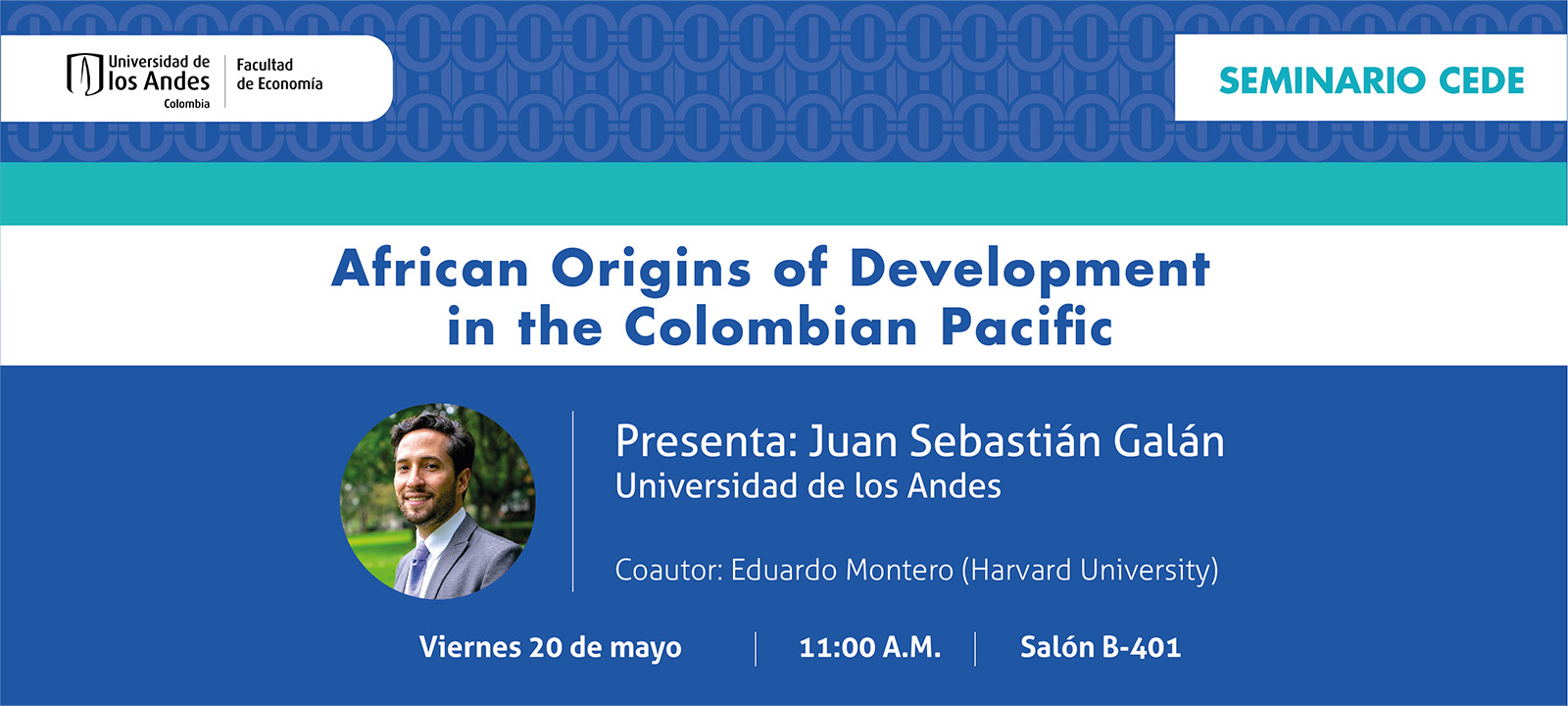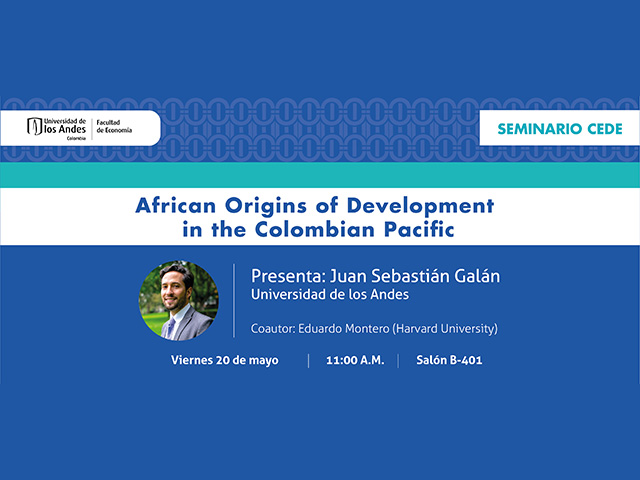Seminario CEDE - Juan Sebastián Galán

This paper examines the effects of African ancestral ethnic differences on long-run economic development in the Americas through the lens of the Colombian Pacific lowlands. We trace the African ethnic origins of afro-colombians by linking a wealth of ethnographical sources with contemporary micro-level data on lastnames. Exploiting discontinuities along the geographical boundaries of Afro-Colombian Community Councils (ACCs), we find preliminary evidence of a “reversal of fortunes”. In contrast to the view that slavery broke African ties, individuals whose ancestors came from more economically developed ethnicities — characterized by centralized governance, loose kinship ties, and non-collective property rights — exhibit worse living standards today. Based on evolutionary anthropology insights, we hypothesize that cultural mismatch explains why opposite African ancestral ethnic traits — including decentralized governance, tight kinship ties, and collective property rights — may have been more useful for adapting to the new Colombian environment of exploitation.

